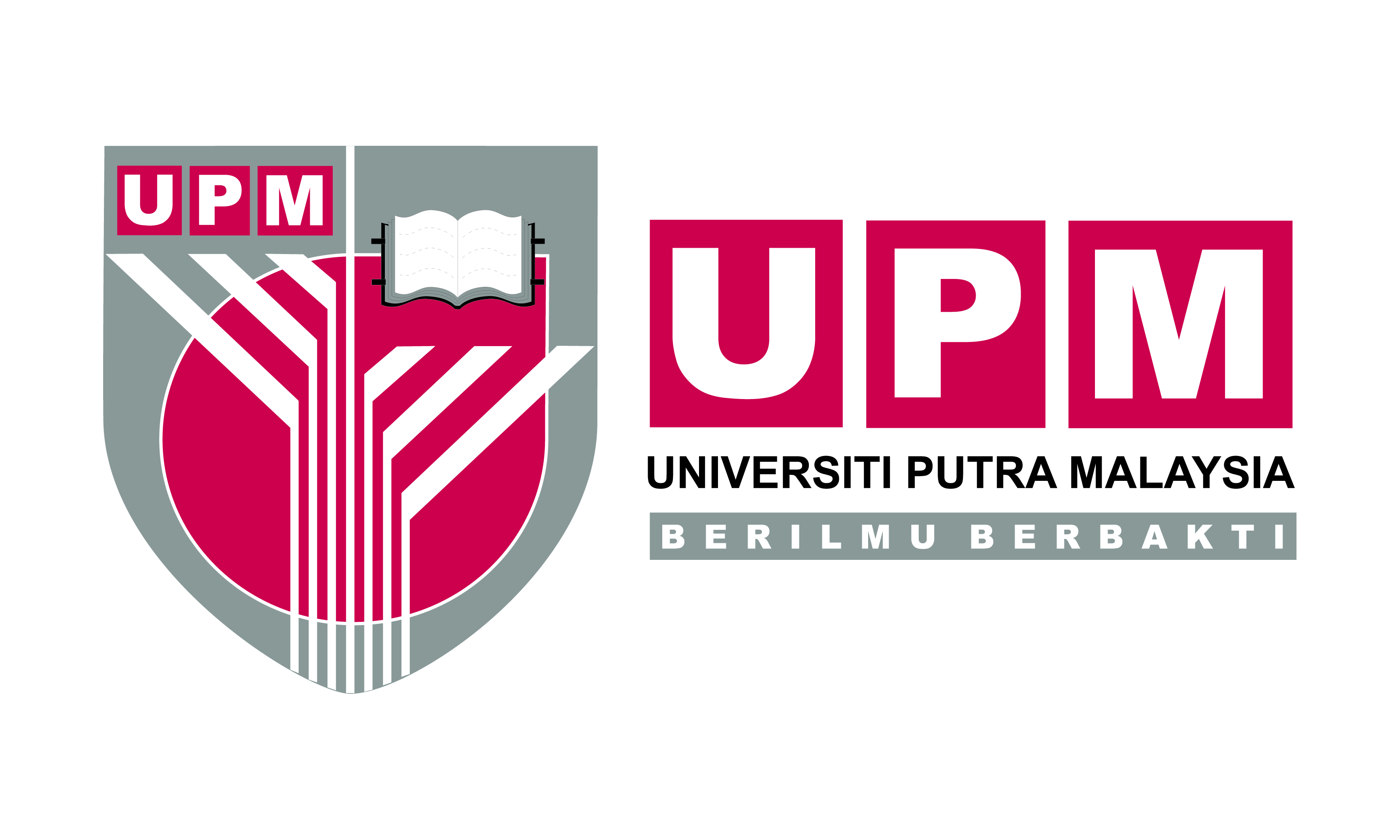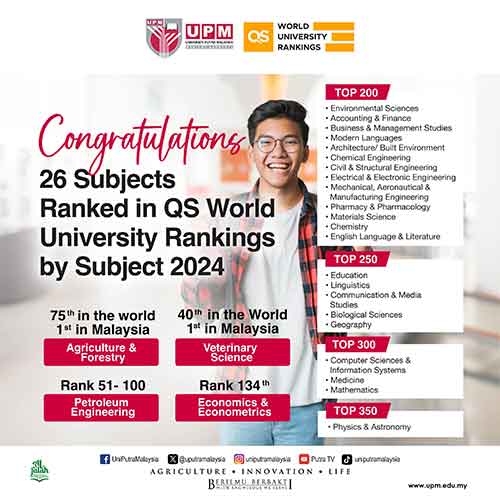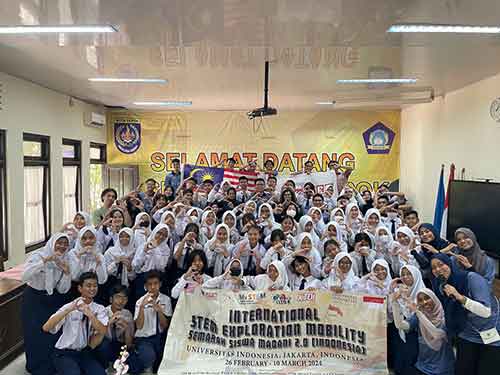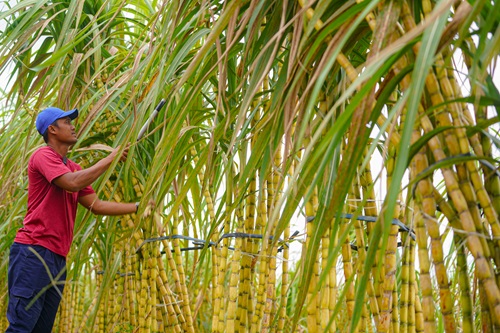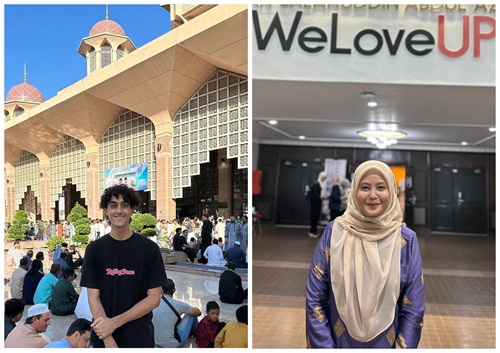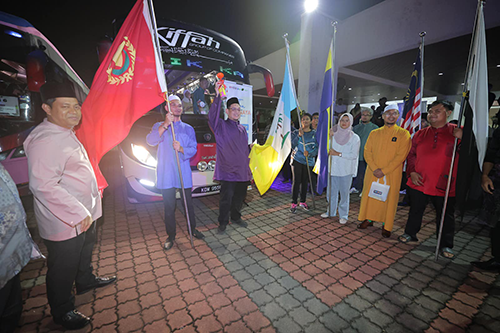By Kuah Guan Oo
Pic by Marina Awang
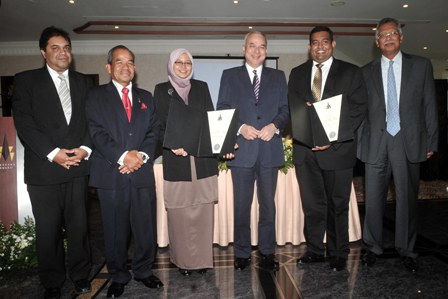
SERDANG, 4 July (UPM) – The two young scientists of Universiti Putra Malaysia (UPM) who were the first-ever recipients of the Merdeka Award Grant for International Attachment were awed by the recognition and they resolved to do their best to live up to the expectation and to serve the society.
Assoc. Prof Dr Abhimanyu Veerakumarasivam, 34, and Dr Natrah Fatin Mohd Ikhsan, 33, were chosen by the Board of Trustees of Merdeka Award from a list of 60 candidates for the short-term grant for qualified Malaysians aged between 22 and 35 to engage in collaborative projects or programmes at internationally renowned institutions.
The awards were presented to the two eminent young scientists by the Regent of Perak, Raja Dr Nazrin Shah, who is the chairman of the board of trustees, at a ceremony on 28 June, 2013.
“The Grant creates the opportunity for recipients to establish contact and working relationships with other experts in their fields, share knowledge and expertise, and upon their return, use these relationships and shared knowledge to further build on the body of work in his or her area of research,” said a statement issued by Merdeka Award.
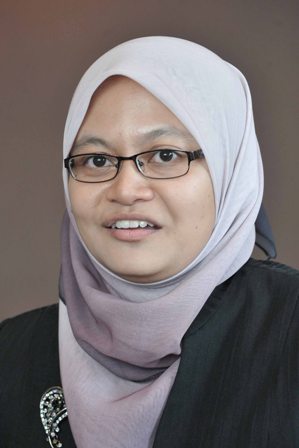
The Merdeka Award was established by PETRONAS, ExxonMobil and Shell in 2007 to recognize and reward Malaysians and non-Malaysians who have made outstanding contributions to the people and nation.
Dr Abhimanyu, who is seconded to the Graduate School of Medicine of Perdana University (PU-GSM) from UPM, said he saw the award as special because it was a sort of recognition to spur him to work harder in order to make an impact on society and the country.
“I am not a KPI (key performance index) chaser but I do feel strongly about making an impact with my work and passion for research, teaching and service to the community, ” said the Kuantan-born geneticist who had studied at SMK Sultan Abu Bakar before coming to UPM where he obtained a First-Class Bachelor degree in Biomedical Science.
A winner of the Tunku Abdul Rahman Gold Medal and the Anugerah Pelajaran Diraja award at UPM, Dr Abhimanyu secured a Government scholarship to read his PhD in Oncology at the University of Cambridge after which he returned to serve as a senior lecturer at UPM, followed by his secondment to Perdana University.
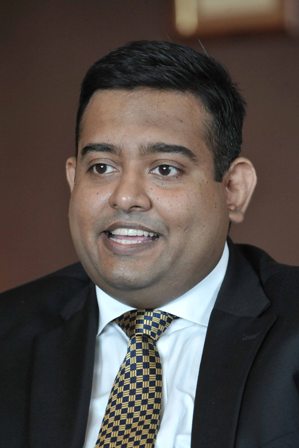
He said while he pursues his research for a cure for bladder cancer, he would use the grant to meet with as many people as possible for the linkages to enhance the country’s post-graduate programmes.
“We do not have a critical mass of scientists like the advanced nations in order to have a first class post-graduate programmes,” he said, adding he wanted to contribute by inspiring the younger generations to go for science.
His work as the PU-GSM director of the Scientific Foundations of Medicine for the MD programme include drawing up the curriculum for the medical course. “We cannot apply the Johns Hopkins’ programme 100 percent because we do not have the equipment and facilities like the American university.”
The PU-GSM is a joint venture between PU and Johns Hopkins and 90 percent of its teaching staff are from that prestigious university.
Dr Abhimanyu who is married to a doctor who is studying to be a pediatrician at Universiti Malaya, said it would probably take another 10 to 15 years for the transformation required in the country’s post-graduate programmes.
For this reason, he and his like-minded colleagues in the Academy of Sciences Malaysia had set up a Young Scientists Network to select and recruit new members for networking and sharing of knowledge and experiences through conferences and symposia.
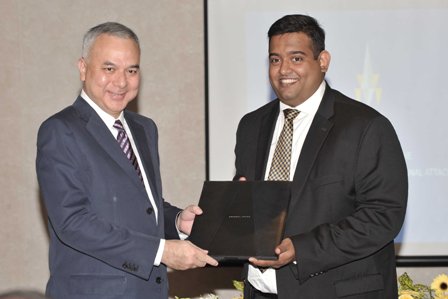
Asked what he planned to do after his term with PU-GSM is up in more than a year, he said he would go back to his alma mater to teach and continue with his research work.
“Presently I still teach at UPM where I am supervising a doctoral and three Masters candidates!” said Dr Abhimanyu, the only son of a retired civil servant and a housewife mother. His other sibling, an elder sister, is also a housewife..
Dr Natrah, a microbial ecologist who hails from Shah Alam, said the award has inspired her to go all out to ignite a passion for science among the younger generations, and the youths to go for agriculture as a profesion.
The eldest of six children of a business family, she had studied at Sekolah Agama Kuala Lumpur before doing her matriculation in Kelantan and joining UPM where she obtained her BSc (Hons) in Biology and MSc in Aquatic Biotechnology. She received her PhD in Applied Biological Sciences from the Laboratory of Aquaculture and Artemia Reference Centre, University of Ghent, Belgium, in 2011.
Dr Natrah, who is a senior lecturer with the Department of Aquaculture of the Agriculture Faculty, is keen to further her research on the interaction between algae and bacteria with the focus on the prevention and control of diseases in aquaculture.

Given the fact that aquaculture is a multi-billion industry that is growing in importance as marine resources diminish through over-fishing, she plans to use the grant to visit a prestigious foreign university for research on interaction between micro-organisms.
“ I hope to learn new skills from different experts and researchers to enlarge my knowledge on microbiology while I initiate collaboration and linkages with them,” she said.
Her attachment with a prominent university could also allow her to help build linkages or bridges for Asia-Pacific collaboration among microbial ecologists.
Dr Natrah who is married to a doctoral candidate, said she would share the knowledge, ideas and experiences gained from the study tour with her fellow scientists, government agencies and the private sector in order to boost the aquaculture industry in the country.
“There are bacteria that are naturally harmful to fish or aquaculture and micro-algae could be a solution to these bacteria.
“For this, I am interested in synbiotics, probotics and bioflok , the latter being a cocktail of microbes that can be used as a feed that can also take care of water quality,” she added. – UPM
-- kgo
